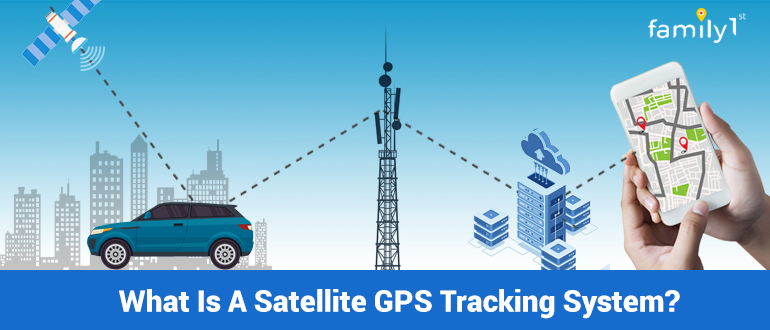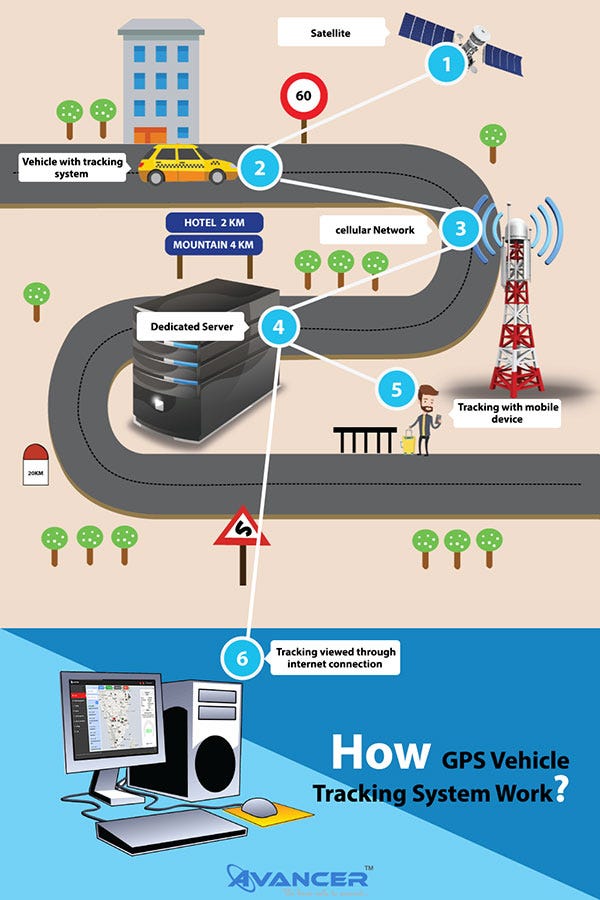Navigating the Future of GPS Tracking: Developments, Difficulties, and Opportunities Ahead
As we stand at the crossroads of societal effects and technological innovations, the landscape of General practitioner tracking is poised for a transformative trip in advance. With great technology comes great responsibility, as data personal privacy problems impend huge and safety obstacles in General practitioner monitoring raising relevant questions about protecting sensitive details.
Advancement of GPS Modern Technology
The Development of GPS Modern technology has actually been marked by significant advancements in accuracy, insurance coverage, and performance throughout the years. Initially developed for armed forces purposes, GPS technology has developed to come to be an ubiquitous device in numerous industries, consisting of transport, logistics, agriculture, and personal navigation. Early GPS systems were identified by limited coverage, lower accuracy, and bulkier equipment needs. However, with continuous technological advancements, GPS has actually transitioned to extra reliable and precise systems that supply global protection and boosted accuracy.
One trick landmark in the advancement of GPS technology was the growth of Discerning Accessibility (SA) in the 1990s, which intentionally deteriorated the precision of civilian GPS signals. As GPS technology continues to develop, we can anticipate further renovations in performance, precision, and protection, opening up new possibilities for advancement and applications throughout different industries.
Real-Time Tracking Advancements
Structure on the innovations in GPS modern technology that have actually transformed precision and insurance coverage, real-time tracking has emerged as a pivotal location of advancement with profound effects throughout various industries. Real-time tracking developments enable companies and services to monitor assets, employees, and vehicles instantly, offering useful insights for decision-making procedures - gps tracking. By leveraging real-time data, firms can boost functional effectiveness, enhance consumer solution, and guarantee the security and protection of their possessions
Among the vital advancements in real-time monitoring is the integration of fabricated knowledge and maker learning formulas, which enable predictive analytics and anomaly detection. These capacities enable positive maintenance scheduling, course optimization, and risk reduction techniques. In addition, the evolution of real-time monitoring systems has actually led to the growth of adjustable control panels and mobile applications, encouraging individuals to gain access to crucial info anytime, anywhere.
Information Privacy Worries

Information personal privacy worries encompass different elements, including the storage, sharing, and retention of location data. Services must carry out robust safety measures to secure GPS tracking information from cyber threats and data violations. Clear policies relating to data collection methods and the purpose of monitoring are vital to construct trust with customers and make sure conformity with data security guidelines.

Security Difficulties in GPS Monitoring
Addressing information privacy issues in GPS tracking is intricately connected to reducing the protection challenges that develop from prospective susceptabilities in the modern technology. One of the key protection challenges in GPS monitoring is the risk of unapproved access to delicate location data - gps tracking. Hackers could obstruct general practitioner signals, control location details, or perhaps track individuals without their consent. This not just gets into individual privacy but also poses significant security risks.

One more security difficulty is the possibility for jamming or spoofing GPS signals. Carrying out durable encryption, authentication actions, and signal confirmation methods are vital actions in dealing with these safety challenges in GPS tracking.
Arising Opportunities in the Sector
The burgeoning field of general practitioner monitoring technology presents a myriad of promising opportunities for sector growth and advancement. One crucial possibility hinges on the development of general practitioner tracking applications past conventional industries. Industries such as logistics, transportation, and fleet management have been very early adopters of GPS technology. Nonetheless, emerging possibilities are now arising in go to this site locations like health care, agriculture, and environmental surveillance. As an example, GPS monitoring can revolutionize person care by enabling remote monitoring of crucial indicators and ensuring prompt clinical aid. In agriculture, general practitioner technology can optimize plant administration techniques and enhance general return. Additionally, ecological monitoring can gain from GPS tracking by allowing real-time information collection for climate research and preservation initiatives.
In addition, the boosting demand for connected tools and IoT options presents a ripe possibility for GPS monitoring firms to expand their offerings and create ingenious services that provide to a more connected globe. By capitalizing on these arising possibilities, GPS tracking business can place themselves for sustained growth and success in the vibrant landscape of the industry.
Conclusion
In final thought, the future of General practitioner monitoring is marked by constant development and advancement in technology. As the sector relocates ahead, browsing these difficulties will be important to make sure the ongoing development and success of General practitioner tracking technology.
With terrific advancement comes wonderful duty, as information personal privacy worries impend huge and safety and security difficulties in GPS monitoring raising significant concerns concerning protecting delicate information.With the quick expansion of General practitioner like it monitoring modern technology in different sectors, attending to information privacy problems has actually ended up being an important imperative for both consumers and services alike. The collection of place information with General practitioner tracking increases substantial privacy issues, as it enables the tracking of people' motions and actions. Organizations using General practitioner monitoring must focus on guarding this information to avoid unapproved gain access to or misuse that could jeopardize individuals' privacy rights.
Companies need to apply robust safety steps to safeguard GPS tracking data from cyber risks and information violations.
Comments on “Comprehensive Guide to GPS Tracking: Boost Security and Efficiency”